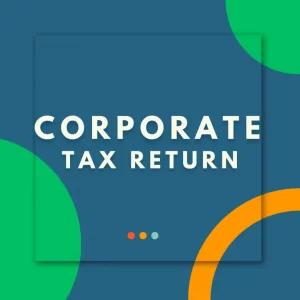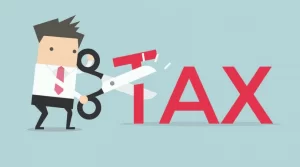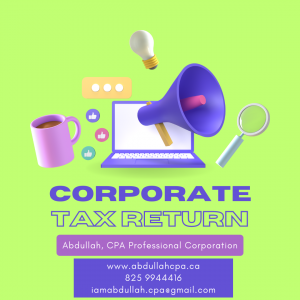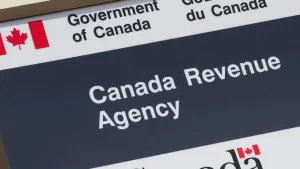Many of us have hobbies that bring us joy; some of us have hobbies that bring us additional income. Whether you bake cupcakes and sell them to co-workers or go fishing after work and sell what you catch to friends, any profit you make from your passion could be considered business income, subject to income tax in Canada. hobby or a business cra
So how do you know if you need to report the income earned from these kinds of “hobby business” activities on your tax return? The answer depends on whether you’re pursuing the activity primarily as a hobby or as a business.
Differentiating between a hobby and a business
When evaluating whether an activity is considered a hobby or a business, the previous position of the Canada Revenue Agency (CRA) was to apply the reasonable expectation of profit (REOP) test to determine if a taxpayer’s activity constitutes a source of income under the Income Tax Act (the Act). In applying the REOP test, the following criteria were generally considered:1
- The profit and loss experience in the past years;
- The taxpayer’s training;
- The taxpayer’s intended course of action; and
- The capability of the venture, as capitalized, to show a profit after charging capital cost allowance.
However, the decisions rendered by the Supreme Court of Canada in two cases—Stewart v. Canada2 and Walls v. Canada3—overturned the application of the REOP test. The Court stated that the REOP test should not be used to determine if a taxpayer’s activities constitute a source of income under the Act and suggested a two-stage approach for the source test instead:
- First stage: Determine if a taxpayer’s activity that results in a source of income is undertaken in pursuit of profit or is a personal endeavour.
- Second stage: If the taxpayer’s activity is not a personal endeavour and is clearly commercial in nature, determine if the source of income is from business or property for the purpose of the Act.
The first stage is only relevant if there is a personal element to the activity (e.g., a hobby). If the activity has a personal element, it will be considered a source of income only if it is undertaken in a sufficiently commercial way. For an activity to be deemed “sufficiently commercial,” the taxpayer must intend to make a profit and must show businesslike behaviour that supports this intention. (If there is no personal element and the activity is clearly commercial in nature, the pursuit of profit is established and any losses resulting from the activity can be claimed.)
The CRA has indicated that it has been following the Court’s two-stage approach when determining if a taxpayer’s activity constitutes a source of income under the Act. The criteria under the REOP test are still relevant, however—if the activity has a personal element, the CRA will consider the criteria under the REOP test to determine if the taxpayer intends to carry on an activity for profit and if the overall evidence supports that intention.4
In fact, the difference between the CRA’s previously applied REOP test and the Court’s suggested two-stage approach is subtle. The former evaluates the existence of a business based on a taxpayer’s “reasonable expectation” of profit from a venture to ensure that the so-called business is not a sham transaction, whereas the latter relies on evidence in support of a taxpayer’s “pursuit” of profit even if the activity is not profitable.
It should be noted that the Courts have also been clear in stating that personal enjoyment and a business establishment may co-exist under the same activity. It is only if the personal element of an activity so overshadows any element of commerciality as to substantially displace it that you may conclude that the activity is merely a hobby and is not a business at all.5
Understanding when to claim hobby income and expenses
In regards to income tax reporting, if you are not pursuing your hobby with the intention of earning a profit (and the evidence supports this position), your personal activity should not be considered a business and should not result in business income. This means that the income from your hobby should not be subject to income tax and the associated expenses should not be deductible. However, if you sell your personal-use property6 (produced through your hobby activity) for proceeds of more than $1,000 per sale, any gain received from the sale may be subject to income tax as a capital gain from a personal-use property.
If a hobby constitutes a business, the income must be declared and reported as “business income” on Form T2125 – Statement of Business or Professional Activities and included in the T1 income tax return. Expenses incurred for the hobby business may also be deductible as current expenses. However, keep in mind that under the general limitation rules for expense deductibility, expenses incurred for personal or living expenses cannot be deducted, and expenses will only be allowed if they’re considered reasonable in the circumstances. Also, if the expenses are capital in nature (e.g., equipment purchased for producing hobby business income), they should be capitalized and the capital cost allowance may be claimed against the hobby business income.
Walking a fine line
There are no hard and fast rules for determining whether a hobby is actually a business. Ultimately, it is a question of fact as to whether a hobby activity generates a sufficient level of commercial activity to support a pursuit of profit and whether a taxpayer has established a clear distinction between a businesslike endeavour and a personal one.
Furthermore, it will always be difficult to distinguish a hobby from a business, because all hobbies have a personal element. For this reason, it is only where a personal endeavour is an activity primarily undertaken for pleasure, entertainment, or enjoyment rather than for profit, business, or commercial reasons that it may be considered merely a hobby and not a business.
Lets Talk with Abdullah CPA






